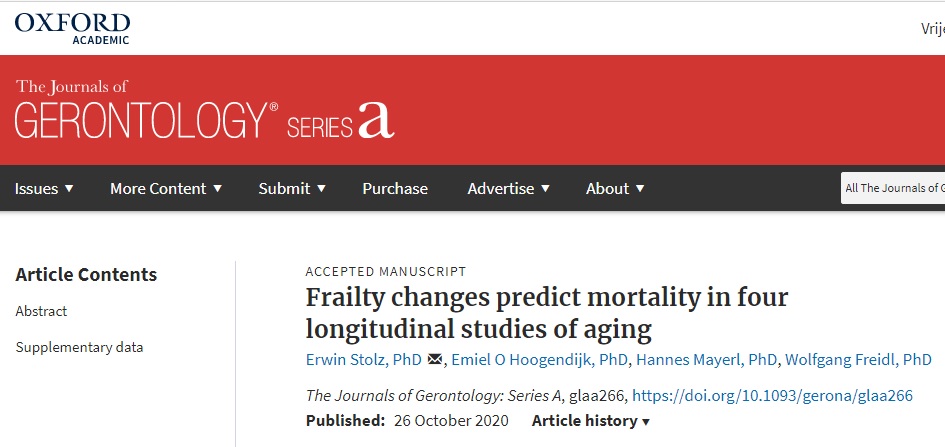We contributed to an article of Erwin Stolz (Medical University of Graz, Austria) that was published last week in The Journals of Gerontology: Series A. The article describes a study on the effects of changes in frailty on mortality, making use of data from four longitudinal studies: the US Health and Retirement Study (HRS), the Survey of Health, Ageing and Retirement in Europe (SHARE), the English Longitudinal Survey of Ageing (ELSA) and the Longitudinal Aging Study Amsterdam (LASA). Frailty meaurement was based on the deficit accumulation approach (frailty index). The results indicated that frailty index changes predicted mortality independently of baseline frailty index differences. These are new insights on frailty epidemiology, as this was the first study to investigate the predictive ability of frailty changes making use of multiple data waves in longitudinal studies. The article concludes that “repeated assessment of frailty and individual’s frailty trajectory could provide a means to anticipate further health deterioration and mortality, and could thus support clinical decision making.”

